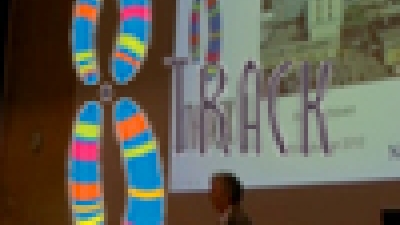
Dr. Ron Kerkhoven
NeurowetenschapperDr. Ron Kerkhoven studeerde moleculaire neurobiologie aan de Vrije Universiteit in Amsterdam en deed promotieonderzoek in de groep van prof. dr. H. Boer een onderzoek naar de vertakkingen van peptiderge neuronen in de poelslak Lymnaea stagnalis en in diverse andere diergroepen. Bij het Nederlands Kanker Instituut (NKI) heeft hij een detectiemethode voor dioxinen opgezet, gebruikmakend van monoclonale antilichamen, en heeft hij zich toegelegd op de bestudering van de activiteit van E2F transcriptiefactoren in kankercellen in de celcyclusgroep van prof. dr. R. Bernards.
In 2001 zette Kerkhoven de NKI Microarray Core Faciliteit op en in de jaren daarna werkte hij samen met onder anderen dr. L. van 't Veer bij het opzetten van een diagnostische microarray voor de bepaling van het ziekteverloop bij sporadische borstkanker. Recentelijk heeft hij zich toegelegd op de ontwikkeling van next generation sequencing.
---
Dr. Ron Kerkhoven studied Molecular Neurobiology at the Free University in Amsterdam. For his PhD thesis he worked in the group of prof dr H.Boer at the Free University where he analyzed the wiring of peptidergic neurons in the brain of the pond snail Lymnaea stagnalis and various other animal groups using immunocytochemistry, monoclonal antibodies and HPLC.
He did a post-doc at the Netherlands Cancer Institute generating monoclonal mouse antibodies to detect dioxins in milk before he joined the NKI cell cycle research group of prof. dr. R. Bernards where he studied the activity of E2F transcription factors in cancer cells. In the NKI he set up the NKI Microarray Core Facility and collaborated with dr. L. van 't Veer and many others in generating a diagnostic microarray test for sporadic breast cancer disease outcome. He recently expanded his activities in next generation sequencing and is now head of the NKI microarray and deep sequence core facility.






